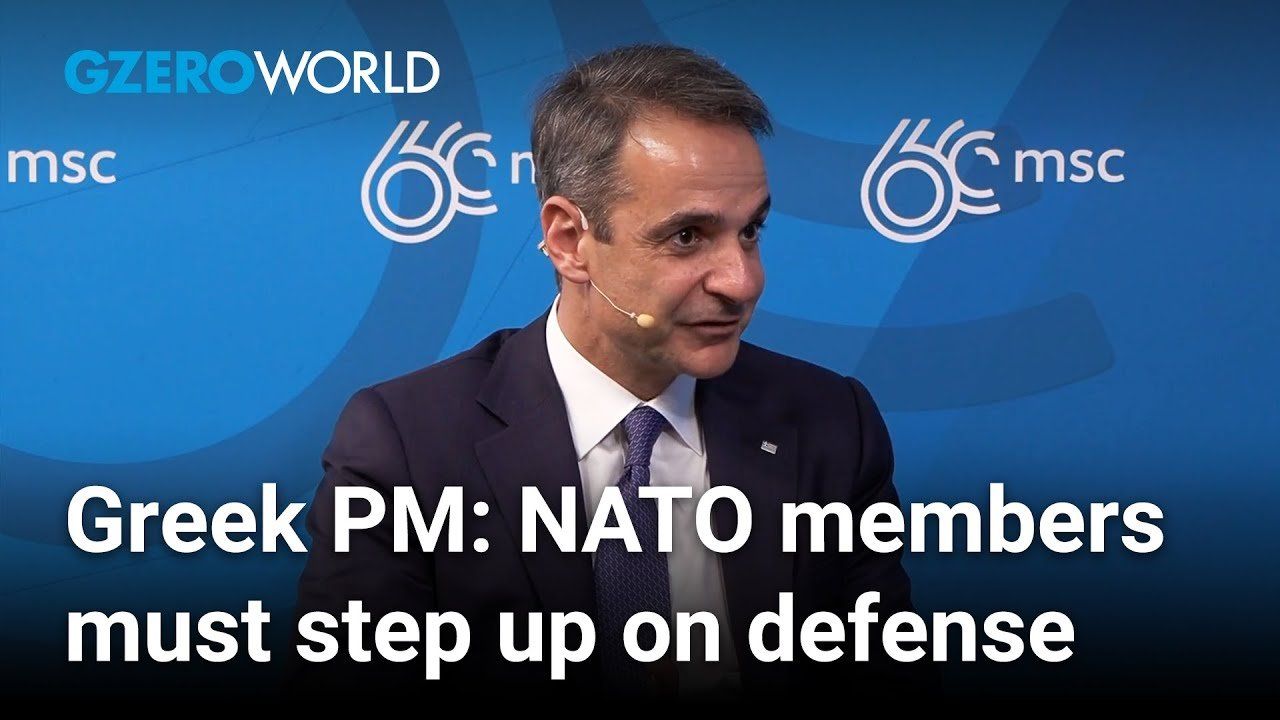
Greece's PM on NATO, Navalny, and the wake-up call to Europe | GZERO World
Greece, the world’s oldest democracy, is undergoing a major digital, economic, and social transformation era. Ian Bremmer sat down with Greek Prime Minister Kyriakos Mitsotakis on the sidelines of the Munich Security Conference to discuss global security, the threat of AI in elections, and Greece’s landmark ruling allowing same-sex couples to marry.
With the two-year anniversary of Russia’s invasion of Ukraine looming large, Mitsotakis stressed the importance of continuing to send financial and military aid to Kyiv and for Europe to increase its own defense spending. NATO allies have committed to spending at least 2% of their GDP on defense, but only 18 of the 31 NATO countries currently meet this goal. Mitsotakis says it’s high time for all NATO countries to step up.“We do our part as Greece, we spend more than 3% of our GDP on defense,” Kyriakos emphasized, “Just taking a look at what's happening in Ukraine, we cannot afford the same risks.”
Kyriakos also explains why it was important for Greece to participate in the unveiling of a major new tech accord aimed at combating AI-generated election misinformation at the conference and why his center-right government pushed hard to pass the recent landmark LGBTQ+ rights bill granting marital and adoption rights to same-sex couples.Watch full episode here: Can Ukraine win the war?
Catch GZERO World with Ian Bremmer every week online and on US public television. Check local listings.
From Your Site Articles
- Why Greek PM Mitsotakis pushed for same-sex marriage despite strong opposition ›
- Mitsotakis wins big in Greece ›
- Greece's PM answers: Are refugees becoming geopolitical pawns between Greece and Turkey? ›
- Russia-Ukraine: Two Years of War ›
- As Russia balks, NATO might gain two strong Nordic recruits ›
- The Graphic Truth: How NATO absorbed its old foes ›
- NATO bares its teeth ›
- Everything is political™: Ancient sculptures edition ›